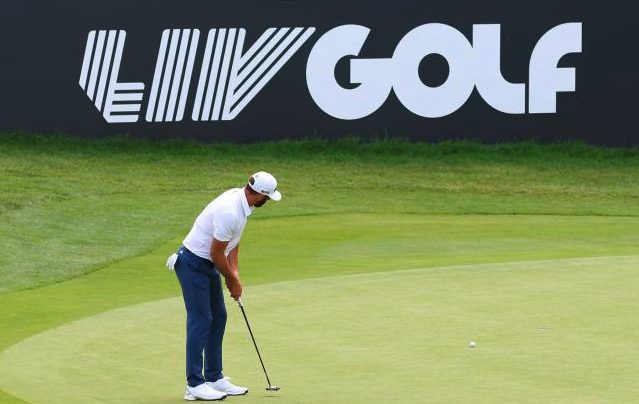How the PGA and LIV saga is changing the world of professional golf
By: Marin Dremock

Every week, there seems to be news of yet another PGA Tour golfer defecting to LIV Golf. If you don’t follow golf, these terms may mean nothing to you. However, if you are a golf fanatic like myself, the recent drama between the PGA Tour and LIV Golf has been stirring the pot (to say the least).
Let’s start with the unbiased, objective basics: the “facts,” if you will.
CEO of LIV Golf, Greg Norman, created the organization with a vision of focusing on star players and their collective power, according to the New York Times.
LIV is controversially backed by Saudi Arabia’s “sovereign wealth fund,” which is “a state-owned investment fund comprised of money generated by the government,” according to Investopedia. In sum, there is a lot of money going into this organization.
LIV Golf, on their website, says their mission is “to modernize and supercharge the game of professional golf through expanded opportunities for both players and fans alike.”
The PGA Tour’s mission statement says this: “By showcasing golf’s greatest players, we engage, inspire and positively impact our fans, partners and communities worldwide.”
Here’s where the problem lies. LIV is attracting the PGA’s “greatest players,” whether it be with large payouts or less demanding commitments. The PGA then suspended the players who decided to compete in LIV tournaments.
This deepens the division between the two golf giants. The PGA is being investigated for anticompetitive and antitrust behavior.
While some players have announced their departure to LIV without controversy, such as Abraham Ancer, others have created more drama than needed. Well-known veteran, Phil Mickelson, after speaking out about and questioning the morality of Saudi Arabia’s leadership, defected to LIV later on.
After the Phoenix Open in February, Brooks Koepka expressed his allegiance to the PGA Tour. “I’m very happy. I think they do things the right way, people I want to do business with,” Koepka said. He later said that LIV would get enough people to play for them because a lot of guys are easily drawn by money.
After the U.S. Open, Koepka announced he was playing for LIV. He expressed that injuries had a lot to do with his decision, and the less demanding schedule was appealing to him. He still neglected to give concrete reasons as to why his opinions of the PGA Tour changed.
Some fans are sticking with the PGA Tour and core players, such as Tiger Woods, Rory McIlroy and Justin Thomas, when they say that LIV Golf is too money-focused and that it shouldn’t be the driving factor for one’s golf career.
Whether or not the two tours will be able to compromise still seems up in the air. The PGA shows no signs of backing off of their player suspensions, but what will happen if they lose all but three players to LIV? When will they begin to realize that their ship might just sink?
Sources: Golf Channel, Investopedia, LIV Golf, New York Times, PGA Tour
